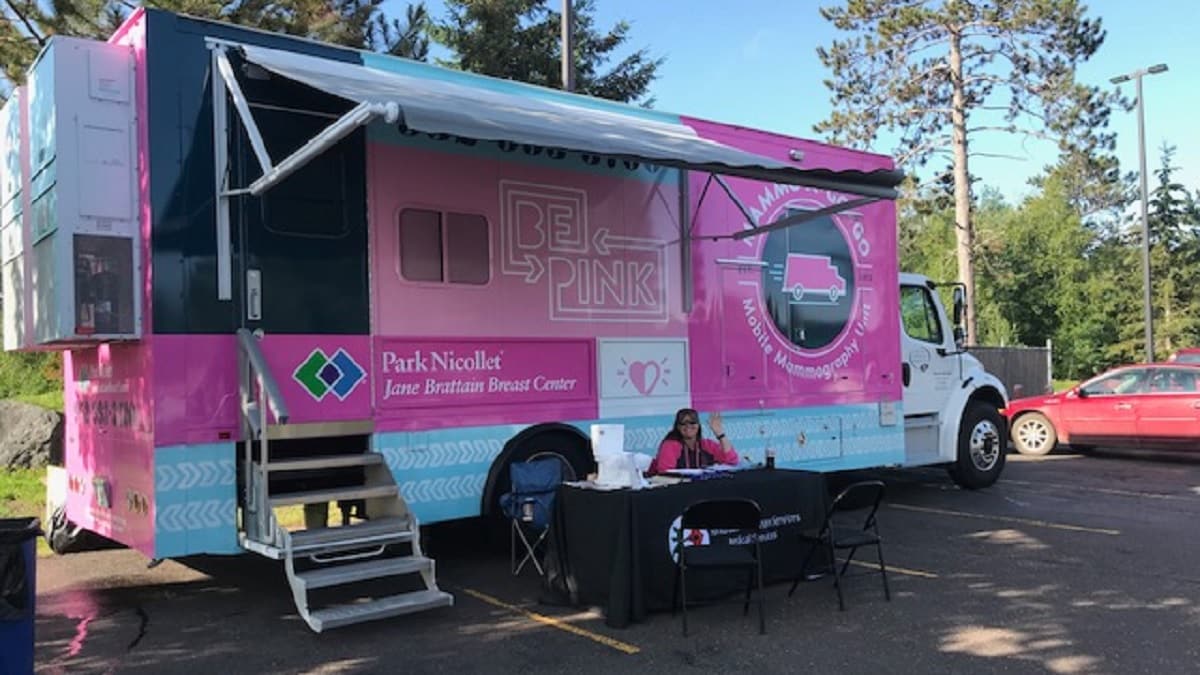Key points
Health officials on the Fond du Lac Reservation in northern Minnesota partnered with the Park Nicollet health care system to provide mobile breast cancer screenings.
Overview
Mammograms are the best way to find breast cancer early. They can find cancer years before symptoms start.
But fewer American Indian women get mammograms than members of other racial and ethnic groups in the United States. Barriers to these life-saving screenings include limited health care and cultural differences.
On the Fond du Lac Reservation in northern Minnesota, health officials are working to overcome these challenges. The Fond du Lac Human Services Division is an award recipient of CDC's National Comprehensive Cancer Control Program. It also works with Minnesota's Sage Screening Programs, which provide free and timely access to breast and cervical screenings for women in the state.
In 2019, the division partnered with Park Nicollet, one of the nation's largest health care systems. The partnership provided breast cancer screenings, via a Mobile Mammo Bus, at Fond du Lac's clinics in Duluth and Cloquet.

But in 2020, health care providers postponed routine care like mammograms during the height of the COVID-19 pandemic. They prioritized urgent needs to reduce the risk of spreading the virus. Fond du Lac's Public Health Emergency Preparedness team canceled all tribal health events.
Outreach worker helps women keep appointments
Despite these challenges, the division continued to provide cancer screenings for tribal members. Clinic staff mailed reminders to encourage women to schedule their mammograms. The division's cancer outreach worker, Denise Houle, contacted patients to discuss any concerns they had and to set up appointments.
"To ensure the safety of patients and staff, we limited the number of people we saw onsite," said Houle. "This meant we no longer saw walk-in appointments."
All clients were screened by phone before their appointments to assess possible COVID-19 exposure. The clinics continued to use the Mobile Mammo Bus, but staff wore masks at all times and sanitized the bus between patients. These efforts helped 63 women get mammograms at the Cloquet clinic in 2020.
Houle continues to reach out to women to schedule their mammograms. She takes time to build trust, offering them support, and encouraging women who are eligible for a mammogram to follow through and put their health first.
Houle's work helps the Fond du Lac Human Services Division increase breast cancer screenings and better serve the community. By keeping a focus on mammograms, even during a pandemic, the division continues to improve women's health.
